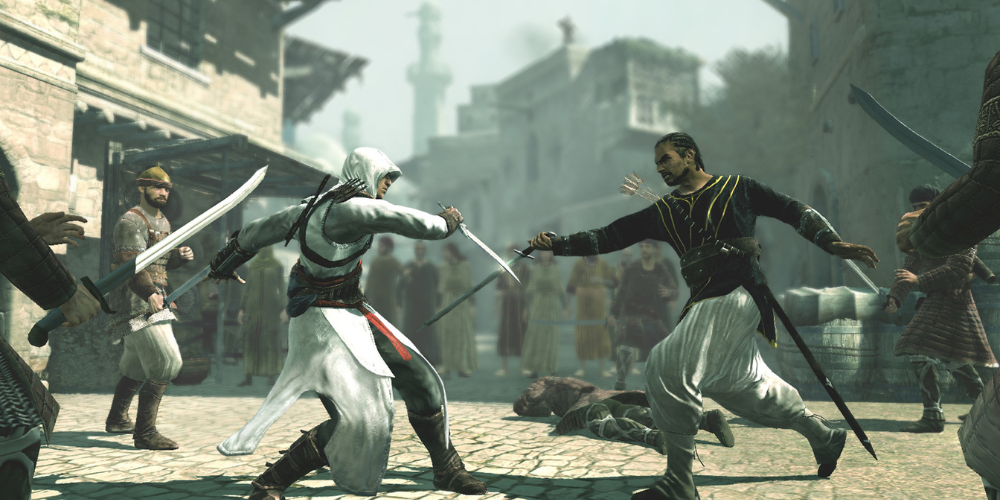In the realm of video gaming, there are certain titles that essentially redefine the landscape of the industry with their innovative mechanics, engaging storytelling, and stunning visualization. 'Assassin's Creed,' created by Ubisoft, undeniably stands out as one of the notable flag bearers in this aspect.

The Assassin's Creed series made its first appearance in 2007 with a game featuring Altair, a member of the Assassins during the Third Crusade. The concept was trailblazing: a stealthy assassin navigating through historical periods, using parkour to maneuver through cities swiftly, and executing secret operations. The first-person perspective and historically accurate setting immediately struck a chord with gamers worldwide. Its revolutionary mechanics contributed to the birth of a brand new genre, the 'historical action-adventure.'
The first game's success opened up the potential for a broad franchise. The developers utilized this opportunity and continued to build the Assassin's Creed universe with numerous sequels and spin-offs, each delving into different historical periods and locations, each with a new protagonist. From the spiritual journey of Ezio Auditore in the Italian Renaissance to the Revolutionary era escapades of Connor Kenway, Assassin’s Creed has taken its players on a spectacular journey through the annals of history.

The Assassin's Creed series has fundamentally changed how open-world games are designed. The level of dedication and research that has gone into making each city as authentic as possible has set the standard high for other open-world games. Additionally, the integration of real-world historical events and figures into the storyline didn’t just create a more immersive experience, it sparked curiosity in its players and highlighted video games as potential educational tools.
Moreover, Assassin’s Creed has brought social stealth into gaming's mainstream. It introduced the notion of hiding in plain sight, blending into a crowd to evade enemies. Coupled with its parkour mechanics, it shaped a novel route to moment-to-moment traversal in an open-world game.

A massive aspect of Assassin’s Creed's impact on gaming is its narrative design. The recurring theme of the age-old battle between the Templars and the Assassins echoes through each game, offering differing perspectives on freedom, order, and the human condition. The narrative threads connect through different eras and have created a grand tapestry that's rare to find in gaming.
As for the future, the Assassin's Creed franchise shows no signs of slowing down. The latest addition, Assassin's Creed: Valhalla, which takes players to the Viking age, further expands the series' reach into diverse historical periods. In the future, fans can expect the series to branch out into other untapped historical backgrounds, expanding the boundaries of gameplay and narrative possibilities.

In addition, advancements in technology also offer an array of options. With the advent of virtual and augmented reality, future Assassin's Creed games could provide even more immersive experiences. Fans are hopeful that Ubisoft will continue to innovate and inspire, keeping the franchise fresh and engaging for years to come.
In conclusion, the impact of the Assassin's Creed series on the gaming world is undeniable and far-reaching. Its innovation in gameplay mechanics, narrative design, and historical accuracy has redefined the open-world genre, influenced countless other games, and cemented itself as a staple in the gaming community. The future of Assassin's Creed promises to build on these achievements, continuing to push boundaries and provide incredible gaming experiences.









